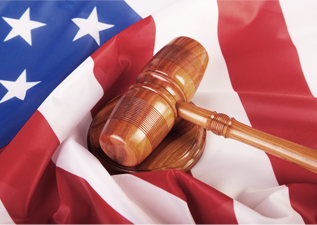In Anthony C. Major v. Julie Maguire, decided by the New Jersey Supreme Court on January 12, 2016, the issue addressed by the Court was the procedure for case management and for determining whether a grandparent, seeking an order compelling visitation under the Grandparent Visitation Statute, has made a prima facie showing of harm to the child sufficient to withstand a motion to dismiss.
The Court stated that while some grandparent visitation cases may dictate assignment to a complex track requiring discovery, including interrogatories and depositions of parties and potential witnesses, others may be handled as summary actions, without discovery or case management.
In its 5-0 decision, the court affirmed an Appellate Division ruling calling for the trial court to re-examine the case using procedural guidelines set forth in a previous Appellate Division ruling from 2014, R.K. v. D.L.. That decision came after the trial judge in the Major v. McGuire case dismissed the grandparents’ petition on a finding that no prima facie case was made that the child would suffer harm in the absence of visitation with her grandparents. The trial judge had granted the defendant’s motion to dismiss the complaint by the grandparents seeking to visit with their grandchild after denying their request for a brief period of discovery and declining their request to present expert testimony as to the question of harm to the child. The Supreme Court said the trial judge should have denied the motion to dismiss and granted the plaintiffs a chance to satisfy their burden to prove harm.
The Supreme Court noted that family judges have broad discretion to tailor the proceedings but should ensure that the best interests of the child remain paramount.
The Court made it clear that “Any discovery should be carefully circumscribed to prevent or minimize intrusion on the privacy of the child and his or her family. It is the rare case that will require the trial court to embark on a comprehensive inquiry into family history or probe the relationships of warring adults. The court, counsel and parties should be aware that no matter how difficult the circumstances may be, the litigants’ interests are not the primary concern. Instead, the court’s focus, and that of the parties, must be on the welfare of the child.” In addition, when a plaintiff in such a case seeks to present expert testimony to meet his or her burden of proof, trial courts should be sensitive to the impact of involvement of an expert on family resources, protective of the privacy of the child, and mindful of an expert’s potential value to the court and the parties in suggesting a resolution of the dispute.
In this case, the Court decided that the plaintiff-grandparents had made a prima facie case that their granddaughter would be harmed if she is not allowed contact with them. The showing was made as required by Moriarty v. Bradt, a 2003 New Jersey Supreme Court ruling that Grandparent Visitation Statute is subject to strict scrutiny.
This decision recognizes the balance that must be exercised by trial judges hearing grandparents visitation cases between the rights of the grandparents to a relationship with their grandchild by requiring a threshold showing of harm to the child, by a preponderance of the evidence, by preventing the visitation, and the rights of the child’s parents to parental autonomy. It provides guidance to attorneys handling these cases as to how far they can go in terms of pursuing the litigation on behalf of the litigants embroiled in them.
Our law office is located in Manalapan. Contact us by contact form or call (732) 972-1600 to schedule a convenient appointment. Evening and weekend appointments are available.
We take cases throughout New Jersey, to include Monmouth, Middlesex, Ocean, Somerset, Burlington, Mercer, Morris, Bergen, Essex and Hudson Counties.



